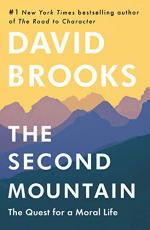|
This section contains 1,460 words (approx. 4 pages at 400 words per page) |

|
Summary
Chapter 19 opens Part IV and traces David Brooks’s intellectual development from his college days at the University of Chicago. He recalls his youthful enthusiasm for radicalism as outlined by Karl Marx and as advocated by young, Jewish intellectuals from the time of the Russian Revolution – Trotskyites in Alcove A of City College of New York and Stalinists in Alcove B (189, 190). But all that changed when Brooks read Edmund Burke’s Reflections on the French Revolution, which counseled not radicalism but restraint, caution, and respect for tradition and apprehension for revolution. Brooks was appalled, then intrigued and finally attracted to this wiser understanding of political inheritance (190). Other conservative intellectuals, from Milton Friedman to William F. Buckley, Jr. furthered Brooks’s journey and cast his university days in a new light: In college, Brooks had had the “humanistic ideal” where professors taught classical texts...
(read more from the Chapters 19 - 22 Summary)
|
This section contains 1,460 words (approx. 4 pages at 400 words per page) |

|




